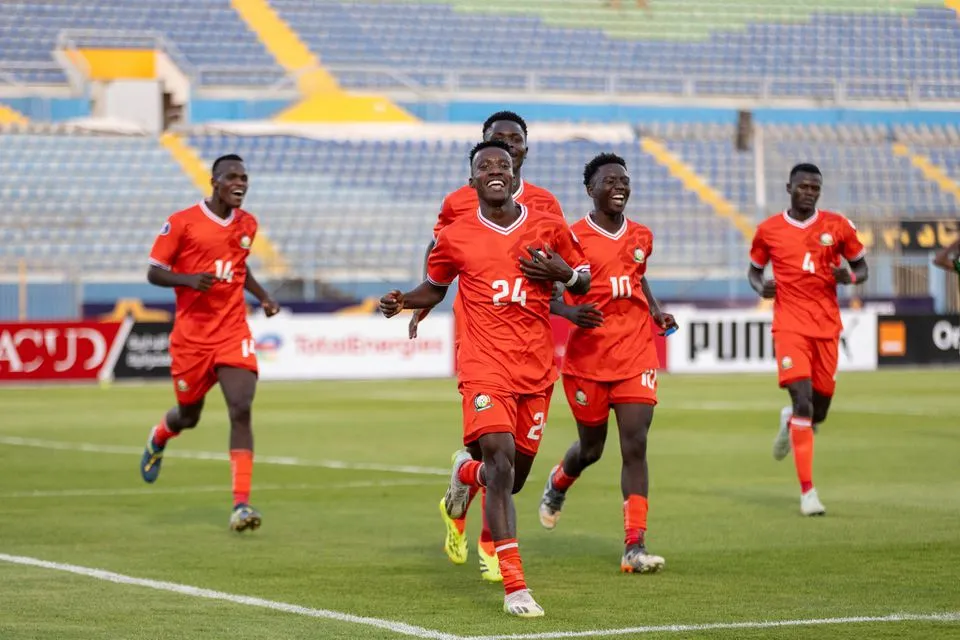Nothing quite stirs the emotions of a football fan like witnessing young talent take the continental stage, dreams and nerves tangled, and carrying the hopes of a nation onto foreign soil. The Kenya U-20 team’s journey at the 2025 AFCON might have ended in disappointment, but amid the sting of early elimination, there was an undeniable spark—a promise of brighter tomorrows for Kenyan football.
Breaking new ground and facing the giants
This was Kenya’s second-ever appearance at the U20 Africa Cup of Nations. Their return to the continental showpiece, more than two decades after their 1997 debut, was loaded with symbolism: a signal that Kenyan youth football is rekindling its ambition. Drawn in Group B, dubbed the “Group of Death”, the Rising Stars squared off with perennial powerhouses Morocco, Tunisia, and seven-time champions Nigeria—a daunting challenge for any side, and especially so for relative newcomers.
The matches that shaped the campaign
The Rising Stars opened their tournament with a valiant but heart-wrenching 3-2 loss to group leaders Morocco. Against Tunisia, early promise dissolved into a 3-1 defeat as defensive frailties again came to the fore. The final group stage match against Nigeria—a team with pedigree and expectations—was Kenya’s chance to bow out with heads held high. Twice taking the lead, twice pegged back by defensive mishaps, the 2-2 draw earned them their maiden point on this grand stage, and a measure of pride. Yet, five goals scored and eight conceded told the full story of a campaign defined by attacking hope and defensive heartbreak.
Tactical lessons and the unforgiving rhythm of elite football
For any football team, the leap from regional promise to continental contention can be brutal. Anthony Akhulia, the Rising Stars’ assistant coach, reflected with candor on what set this AFCON stage apart: every mistake was punished. “We prepared for more than two months, but at this level, even the tiniest lapse costs you. VAR highlighted errors we took lightly, but on this stage, the margin for error is minuscule.”
The defensive line was most exposed—every single goal conceded stemming from preventable errors. From missed clearances to clumsy tackles, the naivety of youth was laid bare. Goalkeeping, too, proved a headache: an early injury to Bernard Jairo, then a nervy transition to Wycliford Oduor, left Kenya’s backline unsettled. The absence of a natural defensive midfielder hurt the side’s ability to shield their penalty box, and penalties were a recurring nemesis, echoing problems faced by senior national sides in recent memory.
| CASINO | BONUS | INFO | RATING | |
|---|---|---|---|---|
|
bonus
New players get 50 free spins and a Ksh 2500 freebet!
See 7 Bonuses
|
info
BK 0000665 PG 0000405 Good combination of online casino and betting platform |
|||
|
bonus
Welcome package: 190,000 KES + 150 FS
See 11 Bonuses
|
info
BK 0000695 PG 0000419 A wide range of bonuses |
|||
|
bonus
Earn points on every bet, convert to cash rewards!
See 7 Bonuses
|
info
BK 0000689 PG 0000414 Amazing Android app, sleek and user-friendly site, and over 1000 casino games |
|||
|
bonus
Deposit KES 147 for up to KES 14,745 bonus + spins!
See 10 Bonuses
|
info
BK 0000683 Industry-leading software providers, over 30 casino games, BCLB license |
The human stories and emerging talents
Yet in the swirl of critique and introspection, individual stories provided hope. Kevin Wangaya’s influence in midfield was a breath of fresh air—a player whose vision, technical skill, and composure marked him out for the future. His tournament featured a goal, two assists, and a man-of-the-match performance against Nigeria. Defenders like Manzur Okwaro displayed adaptability and growth, shifting positions as required and earning praise from the coaching staff for maturity beyond his years.
Lawrence Okoth, dubbed by some as the new Michael Olunga, impressed not only by hitting the net but with his hold-up play and strength—characteristics Kenyan football so often covets. And Hassan Beja—the versatile winger with trickery and drive—caught the attention of both fans and scouts. These performances have drawn the approving eye of Benni McCarthy, the newly-minted Harambee Stars head coach, who is intent on weaving these prospects into the fabric of the senior squad.
Reactions from fans and the football fraternity
The end of the Rising Stars’ campaign unleashed a chorus of mixed reactions. On one hand, Football Kenya Federation (FKF) President Hussein Mohammed voiced pride in the squad’s effort: “Very commendable, everything is also about experience, improving where you have gaps and some of these things take time. Mine is to congratulate the entire team for the good job.”
Sports pundits and supporters, however, were more divided. Some decried the tactical naïveté and missed opportunities for technical bench improvement, while others saw the draw against Nigeria as evidence of character and the need to invest in regular friendly matches and youth development structures. Nigeria coach Eric Chelle, watching from the opposite dugout, was generous in his praise, recognizing Kenya’s raw attacking talent but emphasizing the urgent need for defensive discipline and improved game management.
Six lessons from Kenya’s 2025 U20 AFCON journey
As the dust settles, several lessons emerge—echoed throughout match reports and expert analysis:
- Defense was the Achilles’ heel—consistent, self-inflicted errors undermined attacking gains,
- a lack of a natural defensive midfielder exposed structural weaknesses in midfield cover,
- goalkeeping instability created uncertainty and communication breakdowns at the back,
- penalties conceded became a recurring, costly problem,
- a shortage of big-game experience limited composure under pressure,
- but above all, the emergence of leaders like Wangaya and Okwaro means the future remains bright.
The road ahead and why hope endures
Football, in its most honest form, is a mirror. The 2025 U20 AFCON reflected both where Kenyan youth football is thriving and where it must improve. The campaign highlighted gaps in preparation, in-squad depth, and elite mental resilience. Yet, the experience gained by these young men—tested and sometimes chastened by Africa’s best—will serve as a foundation for a new era.
For Benni McCarthy and his staff, building a more technically fluid and modern Harambee Stars means nurturing this new generation. If lessons learned are translated into structured development, regular friendlies, and a culture of accountability, perhaps Kenya’s next quest on the AFCON stage will last just a little bit longer—and end with the triumph these passionate, talented players crave.
As a sports journalist, I have witnessed enough heartbreak to know that today’s painful lesson is often tomorrow’s legend written in brighter ink. The Rising Stars lit up the stage, if only briefly, and in doing so stoked hope across Kenya. That is a story worth remembering.










